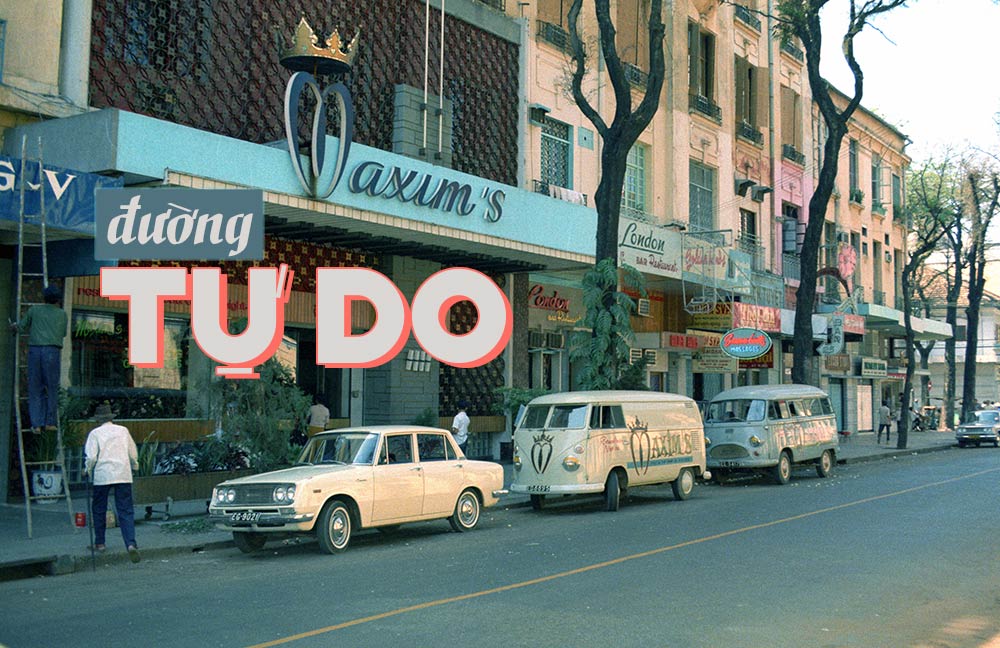
W.Minh Tuan
On January 18, 2023, President Nguyen Xuan Phuc resigned due to corruption concerns.
On March 21, 2024, President Vo Van Thuong resigned due to corruption concerns.
On May 2, 2024, National Assembly Chairman Vuong Dinh Hue resigned due to corruption concerns.
For the first time in the history of the Communist Party of Vietnam, since the party’s founding on February 3, 1930, until the party took power to lead the country on September 2, 1945, until now, 2024, for the first time, three most senior leaders of the party and the State had to resign and be disciplined for their involvement in corruption.
The good thing is that the fight against corruption in the party has “no forbidden areas“, as General Secretary Nguyen Phu Trong said.
But up to 3 most senior officials of the party and state were dismissed for corruption in less than a year, also showing the current corruption situation in the party and state apparatus is very worrying.
This is just the tip of the iceberg.
In the police force, which is a social safety protection agency and an anti-corruption agency, high-ranking police officers are also corrupt, including lieutenant generals, and major generals who have all been arrested.
Strictly handling spoiled, degenerated and corrupted officials are necessary.
But it also needs to go hand in hand with institutional modifications, innovation in party building, innovation in selection, training, and fostering of cadres, and salary reform, in order to effectively fight corruption, to fight corruption from the source of corruption.
Why was a cadre just appointed and then immediately dismissed? The word is that the staff selection process has mistakes.
Why is it that as soon as they are praised, they are immediately criticized? That means the evaluation of cadres is mistaken.
Why, just after making an eloquent speech on the forum about the cleanliness of cadres, did you get caught in a scandal? That means the work of fostering, nurturing and training cadres has mistakes.
Nowadays, Vietnamese people feel suspicious when there is a high-ranking official standing on the forum talking about anti-corruption, but we do not know whether that person is a corrupt person or not.
Corruption exists in every country in the world, everywhere, not just in Vietnam.
In America, there are also corrupt members of Congress. In Japan, there are also leaders of the ruling LDP party who corrupt political funds.
So we are not pessimistic about the corruption situation in Vietnam.
The Communist Party of Vietnam is fighting corruption without any prohibited areas, which is praiseworthy and worth supporting.
But how to fight corruption from the root that gives rise to corruption?
During the Ly Dynasty, when the country was peaceful and without major upheavals, King Ly Thai Tong requested that there be only one promotion every 15 years, and the recruitment of new employees, because of the Imperial bureaucracy, there is no room to recruit more officials.
Thanks to that, the salaries of mandarins in the Ly Dynasty were quite high, enough to protect their dignity. A mandarin had the stipends of about 300 peasant households contributing to that mandarin.
During the Nguyen Dynasty, a mandarin also had a staff of about 50 people, and enough benefits to pay that staff’s salary, and enough for the mandarin and his family to live comfortably.
Therefore, in our ancestors’ time, we all had the “Luong Bao Liem” system, where salaries were high enough so that officials did not have to rely on corruption to make money.
Regarding the selection of officials, our ancestors also used the examination system to select officials. All famous mandarins and famous intellectuals in Vietnam’s history were selected and appointed through examinations.
King Ly Nhan Tong, in 1075, the king issued an edict for those who were good at the scriptures, learned widely and took the Confucian exam of three schools, or called the Tam Truong exam. This time, 10 people were selected. The valedictorian was Le Van Thinh, later appointed Prime Minister.
In 1086, in the examination of those with literary talent in the country, they were appointed to be officials at the Academy. Mac Hien Tich ranked first and was appointed as an Academy scholar.
Mr. Mac Dinh Chi (1272-1346) passed the Trang Nguyen-doctor exam. Mr. Luong The Vinh (1441-1496) and Mr. Nguyen Binh Khiem (1491-1585) both passed the Trang Nguyen-doctor exam and were appointed as mandarins.
Now, in our party today, the main thing is to have a clean background, learn from the party schools, and then be selected from the bottom up.
It is also an elaborate, careful, and well-trained staff selection process.
But perhaps we should also ask whether the cadre training system of party and administrative schools is still appropriate?
US President Bill Clinton graduated from Yale University with a law degree.
US President Obama graduated from two universities, majoring in law, Culumbia Law School, and then Harvard Law School.
Russian President Putin graduated from Leningrad State University with a degree in law.
The French President Macron graduated from Ecole Nationale D’administration-France.
Shouldn’t our party also send cadres abroad, train at the world’s leading universities, return to lead the country of Vietnam, speak English, French fluently, stand on the forum with poise and speak to the people and foreign guests without having to use paper?
Perhaps party officials should be trained like that?
And we must streamline the Party and State apparatus, to serve as a basis for increasing wages. For example, implement a 3-out, 1-in recruitment mechanism, every year 3 people retire and quit-out, 1 new person is recruited-in, keep it like that for many years, so that the Party and State apparatus is reduced to 1/3, or ¼, thereby can increas staff salaries to “protect integrity”?
The Party and State apparatus should also be more compact.
Our Party and State have several anti-corruption agencies, such as the Central Inspection Committee, the Central Internal Affairs Committee, and the Government Inspectorate.
Is it too much? Only need 1 agency, is it possible to merge these 3 agencies into 1?
In the US, only one agency, the Federal Bureau of Investigation, the FBI, is enough to do everything against corruption and protect social order and security.
Or should Vietnam also follow the American model and establish the National Investigation Agency – NIA – to do all anti-corruption investigations, as well as investigate all other types of crimes?
Only when the Party and State apparatus is compact will it be possible to increase salaries.
Our current salary in Vietnam is too unreasonable.
The General Secretary, President, Prime Minister, and Ministers only earn about 30 million VND a month, so how can it not be corrupt?
Our country has developed quite well since Doi Moi in 1986. Up to now, if the Party and State apparatus is reduced by half, the salaries of the General Secretary, President, Prime Minister, Minister, and Provincial Governor will be Maybe 300 million/month is moderate, not high, not low, enough to “protect integrity”, and enough to properly treat officials.
A heroic Vietnam, defeating France, America, Pol Pot, China, and now having great success in the Doi Moi cause, why doesn’t it dare to pay itself a decent salary to have a good life?
Live comfortably and luxuriously enough so that when you go abroad and meet partners, you don’t have to be ashamed because your salary is too low, like being a beggar?
It’s our Vietnamese money, we are not begging from anyone, so why don’t we dare pay ourself a decent, luxurious salary?
The problem is not that we are not capable of doing it, but whether we dare to do it or not.
The problem is not that we are not capable of doing it, but whether we have enough bravery and intelligence to do it or not.
Downsize the State party apparatus, pay decent salaries, send party cadres abroad, study at the most prestigious universities in the world, and return to lead Vietnam.
Comrade General Secretary Nguyen Phu Trong once said “7 dares“: dare to think, dare to do, dare to take responsibility, dare to innovate, so now is the time for party leaders to dare to do first, so that party members and people follow.///
Minh Tuan – Former Head of the News-Economy-Politics Department of Dai Doan Ket Newspaper, former Member of the Hanoi People’s Council for the 1994-1999 term, the first self-nominated delegate in Vietnam –
Currently a lecturer in the Department of Vietnamese Studies, Tokyo University of Foreign Studies-Tokyo University of Foreign Studies-Writing from Tokyo.


Leave a Reply